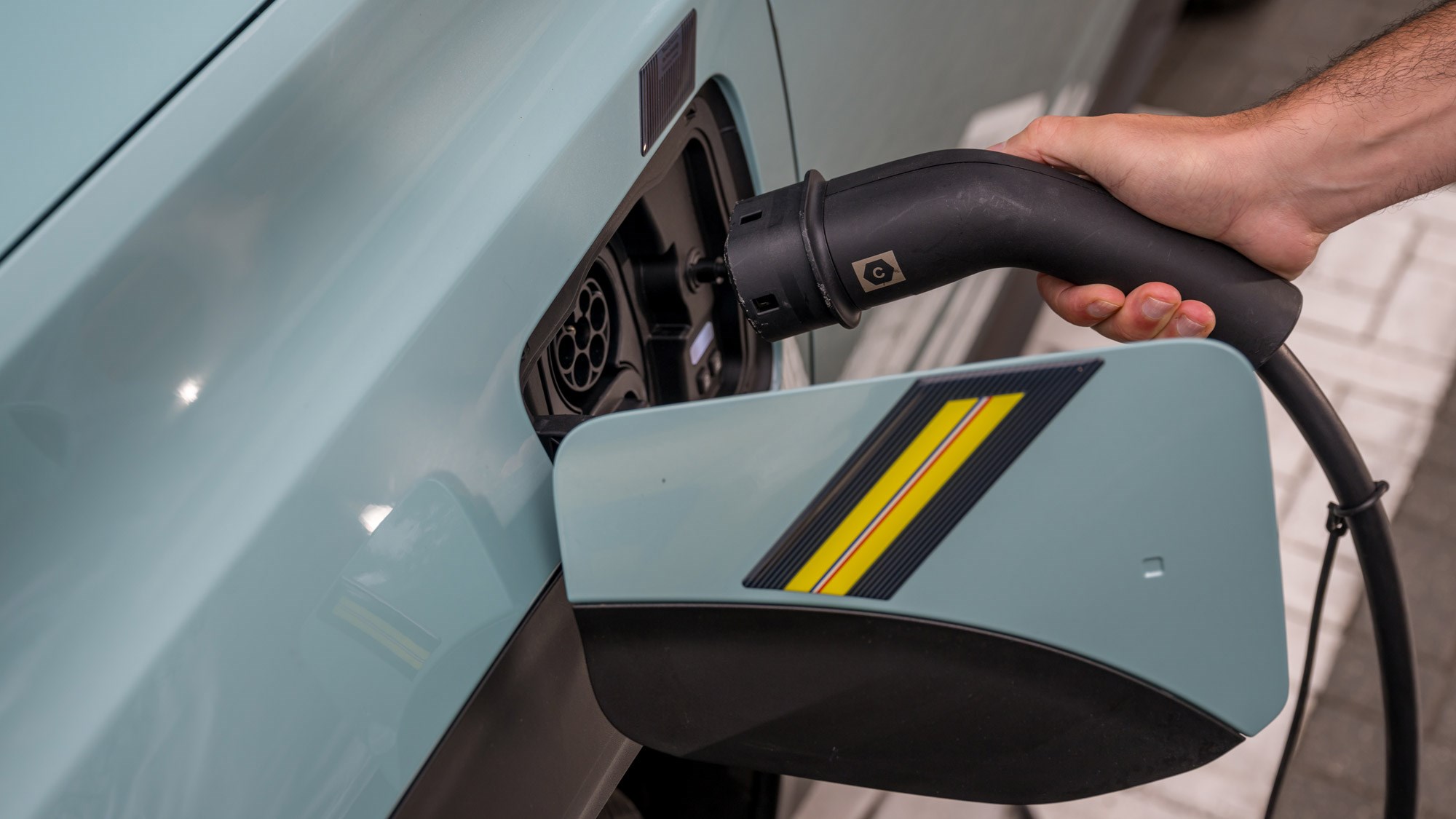► Pay-per-mile introduced in 2028 for EVs and PHEVs
► Tax changes for electric cars
► But warnings it will hit EV sales
Drivers with electric cars and plug-in hybrids are set to be impacted by pay-per-mile road tax charges, as set out today by Chancellor Rachel Reeves in the Autumn Budget.
With a funding blackhole for the Treasury, and the cost-of-living crisis continuing, the government is keen to fix its funding issues, with motorists helping to foot this bill.
Following Reeves’ speech to the House of Commons, we’ve scoured all the Treasury’s documents to see how the UK’s motorists will be affected. Here’s what you need to know.
The government has had a steady and reliable income from petrol and diesel fuel duty for decades, but the rising number of EVs is creating a deficit, and will increasingly do so. The government’s solution is to introduce a pay-per-mile charge on electric and plug-in hybrid cars.
Set to be introduced in April 2028, the charge will be set at 3p for EVs and 1.5p per mile for plug-in hybrids. The Office for Budget Responsibility (OBR) says that with the expected annual mileage of 8,500 miles it equates to a £255 for tax for an electric car driver per year, and it will be charged in addition to existing VED rates. The Chancellor said the money will go towards ‘increased road maintenance’.
The government is considering ways this Electric Vehicle Excise Duty (eVED) would be implemented, but says it will be self reported and that drivers won’t need trackers, for example.
The OBR has, however, warned that eVED could go against the government’s ZEV mandate electric car targets, and estimates that 440,000 fewer electric cars could be sold as a result.
Currently any car with a list price of more than £40,000 when new incurs an additional tax known as the electric car supplement (ECS). Previously electric cars were exempt from the tax but that changed for EVs registered from April 2025. The ECS stands at £425 per year, on top of the usual VED, and applies for the five years after a car’s first registration.
Reeves has now announced that the luxury car tax threshold for electric cars will be increased from £40,000 to £50,000, exempting popular EVs such as the Tesla Model Y and Audi Q4 e-tron (depending on trim) from the extra charge.
The government introduced its electric car grant in July 2025 as a way to increase uptake of more affordable EVs – it only applies to models with a list price of less than £37,000. Discounts of up to £3,750 are available, depending on a car’s sustainability credentials.
Reeves has now confirmed an additional £1.3bn of funding to the scheme, which has been extended to 2030.
As part of the Budget, Reeves committed an additional £100m to ‘accelerate’ the rollout of further EV charging. It is also starting a review looking into the expense of public EV charging, and says it will report its findings in Q3 2026. A further step it is taking is launching a consultation looking at ‘cross-pavement EV charging’ with the hope of making it easier for those without a driveway to have an electric car.
The Chancellor also confirmed a 10-year 100% business rate relief will be offered to eligible EV charge points and EV-only forecourts.
If you don’t run an EV or PHEV, you might feel rather left out of this year’s Budget. But Reeves has announced something that could help motorists with petrol and diesel cars – a ‘Fuel Finder’ service that mandates forecourts have to show real-time prices, said to save an average household £40 a year.
Reeves said: ‘It will empower drivers to find the cheapest fuel, calling out rip-offs and strengthening competition.’ It’
Though announced ahead of the Budget, the Chancellor has now confirmed that it has worked with Motability to remove ‘luxury’ cars such as a Mercedes from its scheme imminently.
Reeves says it will ‘get the scheme back to its original purpose of offering cost-effective leases to disabled people’. Alfa Romeo, Audi, BMW, Lexus and Mercedes-Benz models had been removed from the scheme, as have coupe and convertible models.
Orders for these cars can still be placed until November 30, and it won’t impact those who already have one of those aforementioned brands on a current Motability lease.
The government has announced a delay to the controversial employee car ownership scheme (ECOS), a perk for some of those who work for a car company as well as a dealer group.
The scheme provides a worker, or a worker’s family, access to a car at a preferential rate for usually six to nine months, before they’re then returned to the car manufacturer, or dealer. It currently helps to ensure a steady supply of nearly-new vehicles, and though the government had proposed a measure that would essentially ECOS, Reeves has now confirmed it will be delayed until an April 2030.
New cars editor, car reviewer, news hound, avid car detailer
By Ted Welford
New cars editor for CAR and Parkers. Loves a car auction. Enjoys making things shiny
© 1962-2025 Bauer Media Group
Bauer Media Group consists of: Bauer Consumer Media Ltd, Company number 01176085; Bauer Radio Limited,
Company number: 1394141; Registered office: Media House, Peterborough Business Park, Lynch Wood, Peterborough PE2 6EA and H Bauer Publishing, Company number: LP003328;
Registered office: The Lantern, 75 Hampstead Road, London NW1 2PL
All registered in England and Wales. VAT no 918 5617 01
H Bauer Publishing are authorised and regulated for credit broking by the FCA (Ref No: 845898)











